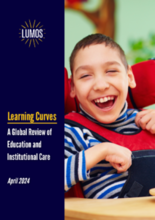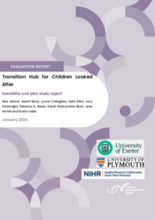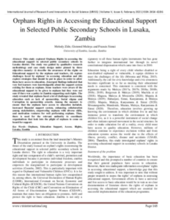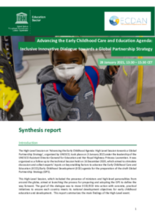Displaying 1 - 10 of 350
This study examines the educational experiences of children in Charitable Children's Institutions (CCIs) in Kenya, highlighting how institutional care often fills gaps left by inadequate education and other services in contexts of poverty. Findings reveal that children in CCIs face marginalization, stigma, and disrupted learning, while promising interventions include cross-sector partnerships, safeguarding training, and transitioning CCIs toward community-based support within national care reform.
This webinar explored the importance of working across sectors to enable effective care reforms. Speakers focused in particular on work with social protection and education sectors, drawing on examples from Kenya, South Africa, Uganda and Rwanda.
This Global Thematic Review on Education examines the under-researched relationship between education and institutional care.
This is a feasibility and pilot evaluation of the Transition Hub -- a multi-disciplinary team which aims to support young people aged 11 to 17 who are making the transition into care or experiencing a placement transition in England. The feasibility phase explored the feasibility of delivery and aimed to provide lessons for further research. The pilot phase examined whether the Transition Hub might evidence promise on desired outcomes and sought to offer further learning about delivery and acceptability.
This Lumos working paper examines the relationship between education and institutional care and the fact that many children – especially those who are most vulnerable – can only access education in residential settings, settings which share similar harmful characteristics with institutional care settings.
The study sought the socio-economic supports available for the high school adolescent girl learners from child-headed families (CHFs).
This article seeks to echo the voices of 36 children aged 10 to 12 who participated in a therapeutic primary to secondary transition initiative for looked after children. Informed by a participatory action research approach, its focus was to facilitate the child’s voice.
This article seeks to echo the voices of 36 children aged 10 to 12 who participated in a therapeutic primary to secondary transition initiative for looked after children.
This study explored Orphans Rights in accessing the educational support in selected public secondary schools in Lusaka district.
This report summarizes the main findings of the High-Level Session on ‘Advancing the Early Childhood Agenda: High Level Session towards a Global Partnership Strategy’, organized by UNESCO.







